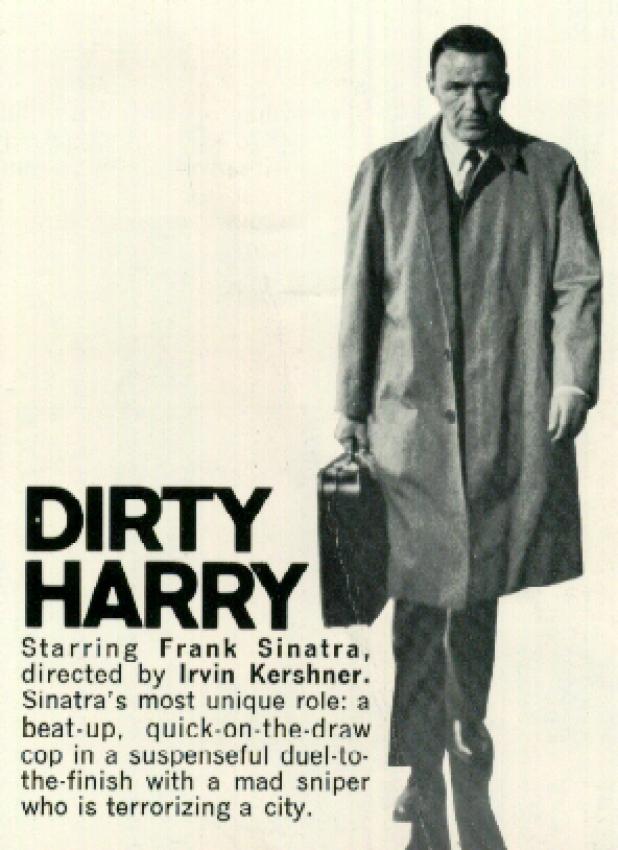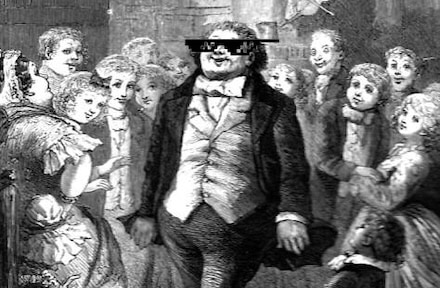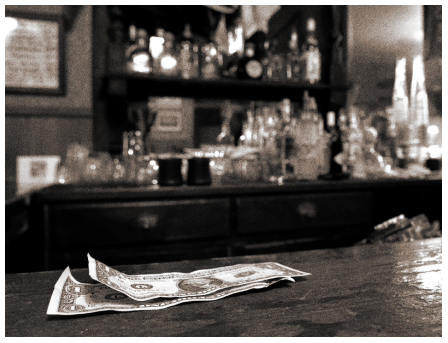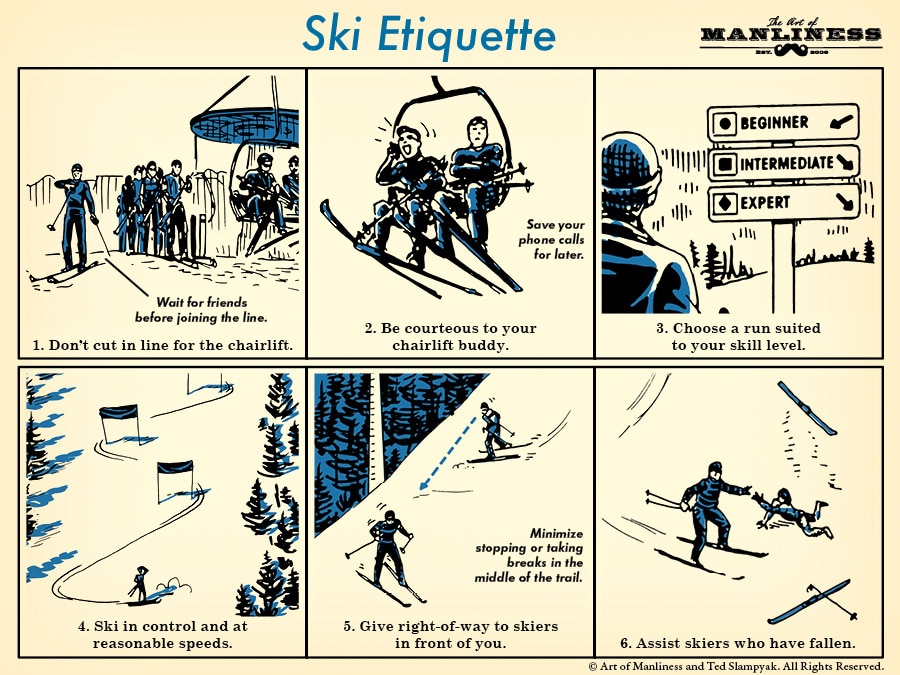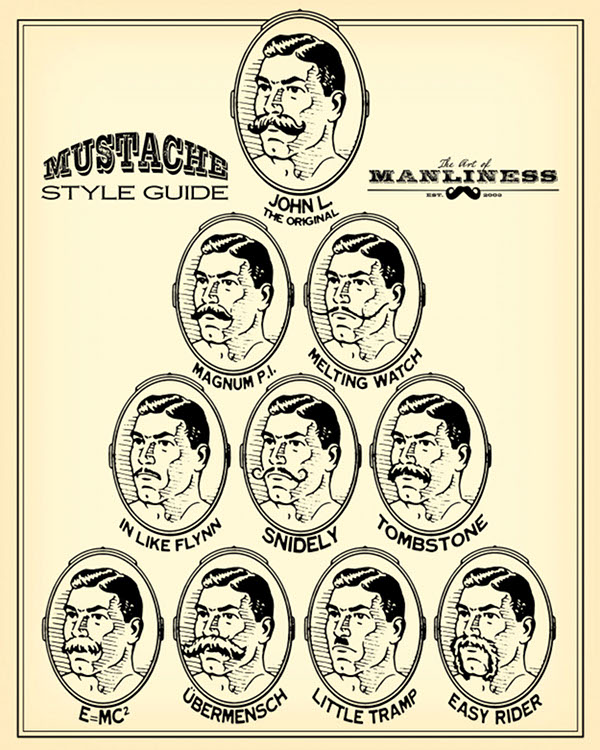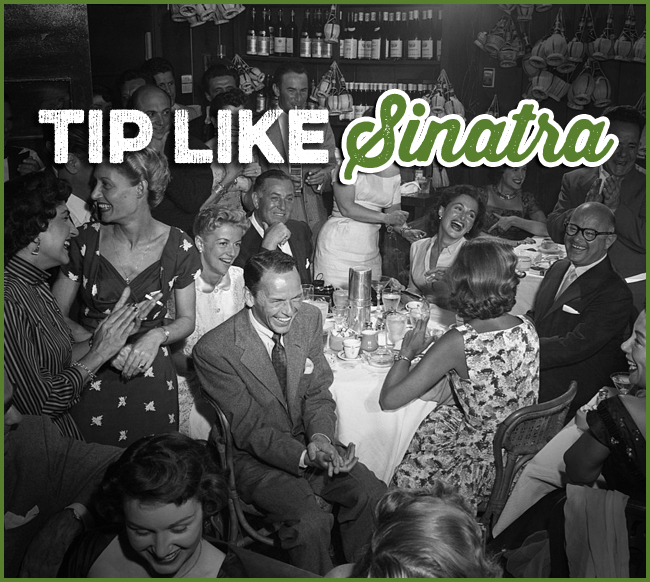
Frank Sinatra had a word for tipping: duking.
And no one duked like Sinatra.
Tom Dreesen, his longtime opening act, said Frank would never make a show of it. Instead, folded bills were passed in an ordinary-seeming handshake. In fact, ol’ Blue Eyes rarely did the duking himself; instead, he handed his bodymen stacks of cash and issued his trademark directive: “Just duke ‘em for chrissakes!”
Besides frequently tipping, Sinatra handed out gratuities in Midas-like amounts. He almost always duked in c-notes — $100 bills. And this was in the 1950s and 60s! That’s more than $1,000 in today’s money. Sinatra’s friend Don Rickles joked that “whoever he tipped could go buy a mansion in Paris.”
To Sinatra, tipping wasn’t about multiplying the total of the bill by 15% at the bottom of the check; it was part of his code. Duking was his way of saying: I see you. I value what you do. And I want you to know it.
Even though Sinatra had far more money to spread around than the average joe, there are still lessons we can learn about tipping from the Chairman of the Board — guidelines that are especially relevant in a world where the cultural practice has gone awry.
The Trouble With Tipping Today
Tipping used to be simple. You tipped the waiter. The bartender. The shoeshine guy. The bellhop who lugged your Samsonite to your room.
Now, the touchscreen spins around at the fast-food counter and you’re asked to choose between 18%, 22%, and 25% . . . for someone who just handed you a value meal. The proliferation of digital tip prompts has created what economists and etiquette experts call tipping fatigue. When you’re asked to tip for transactions that don’t involve personal service, the whole thing starts to feel less like hospitality and more like a shakedown.
The Emily Post Institute and other etiquette experts draw a line here: you don’t need to tip for counter service or pre-packaged goods. Save it for situations where someone is personally attending to you; where their level of care or craft contributes to the overall quality of the experience.
A barber who takes twenty minutes to shape your mane? Tip.
The hotel concierge who gets you an umbrella? Tip.
The waitress who remembers you like your coffee black and your eggs over easy? Tip.
The cashier at the self-serve frozen yogurt place? No tip.
Sinatra’s Guide to Tipping
Sinatra’s tipping needn’t be imitated dollar for dollar. Few of us carry around wads of C-notes. And while I admire his generosity, Sinatra was definitely too much of a spendthrift. But the attitude he took about tipping is worth reviving. It’s generous. It’s big-hearted. It’s magnanimous. It’s fun.
Here are some Sinatra-inspired tipping rules for the modern world:
1. Tip big where it counts. The barber you see every month. The waitress who knows your kids’ names. The hotel staff who make your stay comfortable. These are the folks who elevate your life a bit. Elevate their life in return with a nice tip.
2. Don’t nickel and dime people. If you can afford the service, you can afford the tip.
3. Skip the tip when it doesn’t make sense. No one expects you to tip the cashier at the gas station. When every screen in America demands a gratuity, discernment keeps generosity from becoming meaningless.
4. Keep it discreet. Flashing cash for attention turns generosity into performance. Sinatra never tipped to be seen. He tipped to honor. His preferred method was folding a bill three times into a small square and subtly passing it in a handshake. Executed with maximum discreetness — just like a CIA brush pass.
5. Only duke on the way out. Sinatra never greased palms to jump the line or get premium service. He only duked as he was leaving — as an expression of appreciation for services rendered.
Duking as Hospitality
What I admire most about Sinatra’s prodigious tipping was that it was a micro-habit of his broader life stance of radical hospitality.
Friends recalled that when they stayed at his Palm Springs compound, they’d find the medicine cabinets in every guest bungalow were stocked with toothpaste, aspirin, and tampons. And they were usually personally stocked by him. Bracelets and watches sometimes appeared at breakfast, just because. If someone complimented his tie, the next day they’d find a package with that exact tie. It was important to Sinatra to make sure people felt welcome and cared for.
We’ve written before about the manly art of hospitality. In ancient cultures, hospitality was tied up with a man’s sense of honor. To be a man meant to take care of others. I reckon the Italian-American Sinatra still carried with him that Old World sense of honor and expressed it accordingly.
Besides strengthening one’s own honor, the hospitable stance lifts others up. Sinatra definitely harnessed the spirit that Old Fezziwig emanates in A Christmas Carol. Fezziwig was a baller. So was Sinatra.
Tipping was one extension of that hospitable ethos.
Just Duke ‘Em!
You don’t need to drop $500 a night in crisply folded one hundred dollar bills to tip like Frank. Just take the stance he did: Be generous, give big whenever it matters, keep it low-key, and mean it.
When you do, you’ll live with, and impart to others, a little more ring-a-ding-ding.


